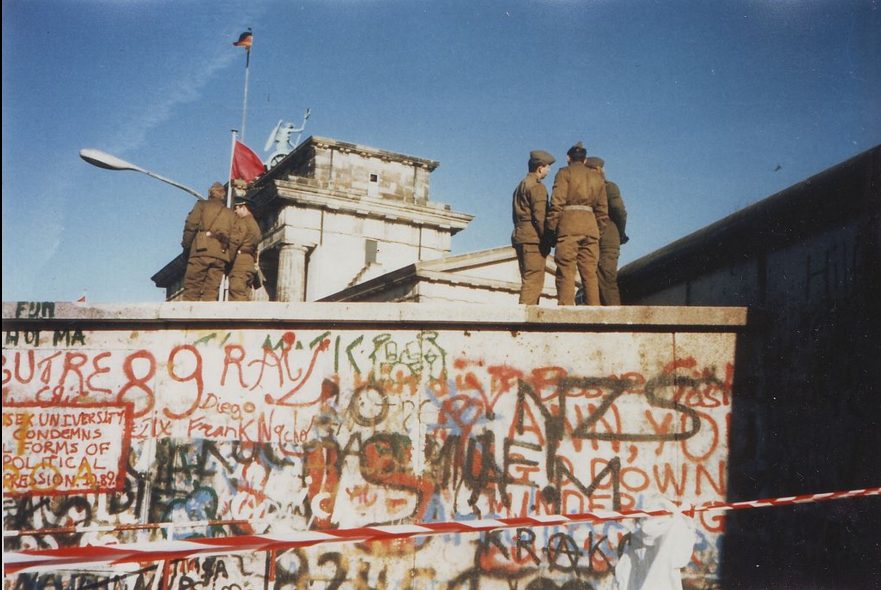
Ah, the book business. So many shifts and changes since the day I set out to become a novelist…and ended up a social media expert, blogger, teacher and self-appointed author crusader. I’ve dedicated millions of words and countless hours of research to guide y’all through the massive changes in the publishing industry.
My goal was (and is) to do everything I could to shelter you (writers) from predators I knew would prey on your fears. Three books and thirteen hundred posts later…
It’s been an honor to serve and shepherd you guys through the largest changes in human history and in publishing. Frankly, without you guys, I might have given up ages ago. Thank you so much for being there for me! We are not alone, right?
After years of upheaval, good news is…I think we’re almost there.
*angels sing*
The Long Road Unknown
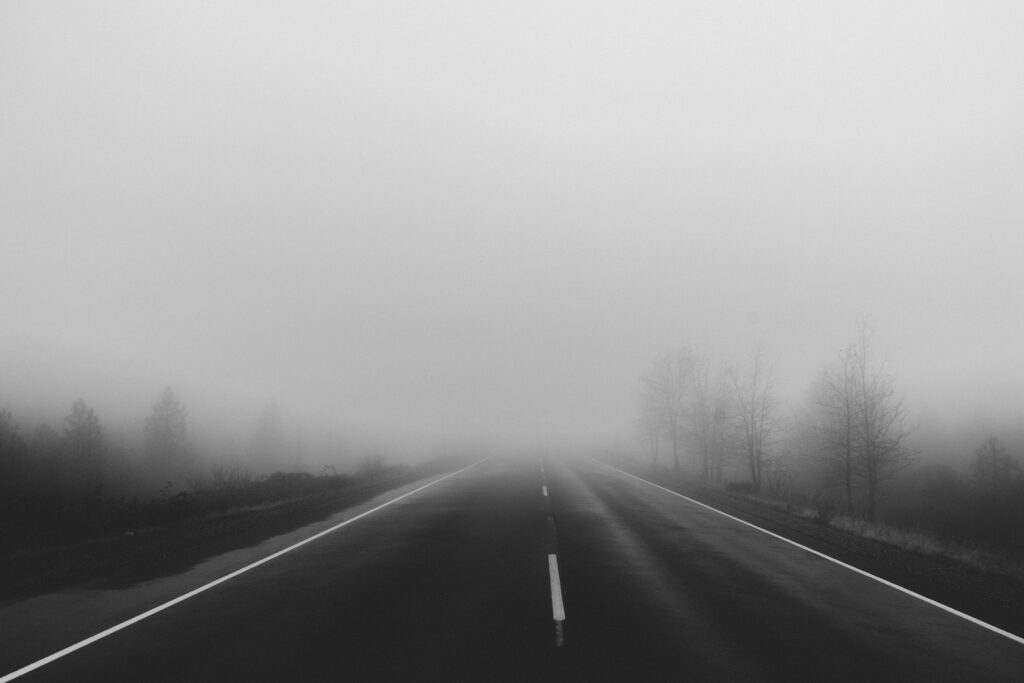
Deep down I knew the little guys would win if we just held our ground. It’s why I’ve gone to the mattresses time after time against predation, fraud, usury, deception, and greed. Why I’ve created strategies that empowered authors in branding, social media, and platform building.
The only side I’ve ever taken has been the writers’.
I think it’s fair to say most of us (writers) have been in a perpetual state of terror (peppered with brief windows of hope) for far too long. If you’re like me, maybe your sparkle’s been dimming.
Would we really ever taste freedom? Was writing even worth it anymore? This ‘new age’ that was supposed to be so wonderful had only managed to crush our childhood dreams.
Don’t know about you, but I dreamed of book signings, launch parties, my novels on pretty displays in an actual store. I imagined a real book signing with devoted fans I’d be able to meet face-to-face. Those were the dreams that kept me going in my darkest hours when it made no sense to keep on writing.
I don’t think a single one of us fantasized about favorable algorithms, a massive mailing list with a solid open rate, or a depressing spot for ten copies of our book on a Costco bargain table. And I sure as hell never dreamed of working like an organ-grinding spider monkey for fractions of KU pennies.
None of us did.
I kept wondering how we could possibly be in a Golden Age for creatives when it FELT like an Ice Age. How was this possible? Now? I believe I know that answer.
It’s because a Publishing Cold War has been raging…and it’s all about to play out.
Clash of the Titans
Since the birth of Web 2.0, two superpowers have been gridlocked in a Publishing Cold War: Amazon vs. Traditional. There have been major upheavals, great wins, and massive casualties. Meanwhile, a lot of writers huddled under our desks doing drills. Here’s how to kiss our @$$es goodbye!
Cheer up!
It’s all on the verge of playing out and it’s an incredibly bright future for writers who can position properly (high-quality books, large vested platform, solid brand). Great news is we writers control all three of these factors ;).
Last time we discussed The Success Paradox, and we’ll continue those lessons. But I can’t help you win a game if I don’t show you the whole board. I think by the end of his post, you’ll see why I believe writers finally have MUCH to celebrate. Bear with me. I’m cramming 20 years of publishing changes into this post so you can fully appreciate the vista we never thought we’d live to see.
I know you’re going to LOVE IT!
Why Listen to Me?
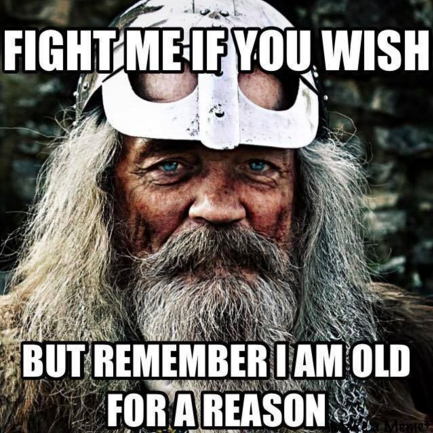
I’ve called virtually every major market shift in publishing years before said ‘shift’ happened. Among too many other predictions to mention (which came true) I forecasted the contraction of the Big Six and that Amazon would open brick-and-mortar stores on May 2, 2012.
I reiterated this Amazon prediction at the end of 2012 .
Amazon has become a name to be feared when it comes to e-commerce, but there are still limitations to selling on-line. Also, in my opinion, Amazon Publishing is the woman in the red dress who finally wants a ring. She wants to be legit, and the only way to do this is to have a physical presence in a bookstore.
Commenters called me crazy. But just because I was crazy didn’t mean I wasn’t also correct. Amazon opened their first brick-and-mortar in Seattle in November of 2015, three and a half years after I blogged this would happen.
*gets cramp patting self on back*
Know the Business of Our BUSINESS

Now, do I have magical powers or some under-the-table deal with Satan that allows me to see with this kind of accuracy? Nope. My degree trained me as a political analyst then my early career in industrial paper sales taught me to think like a business analyst. I never could have imagined how this job was preparing me for a future I’d never considered.
Back in the day, I had a nine-state territory that also included Northern Mexico, which I drove…in a CAR. On top of that, I had to meet a minimum yearly sales quota of two million dollars. That is a LOT of freaking paper, by the way. A lot of driving, too. I’ve logged more miles than most truckers. Eighty thousand miles in one year.
My job required that I be able to look at the market as a whole then, using countless data points, hazard good guesses. The better my ‘guesses’ the greater my chances of making or exceeding quota. Unless I wanted to waste a lot of time and even more gas, I had to be able to predict where the best business would be that month, in six months and the following year(s).
When It ALL Goes Horribly Wrong
I’d just about hit my stride and figured out my new job when the cost of steel skyrocketed, which shot our largest customers’ operational costs through the roof (the shipping industry). Back then, these companies used our cardboard to protect and stabilize inventory, which they then secured with steel banding.
Super cheap steel banding meant these customers had always been able to purchase regular truckloads of paper. Alas, those big bread-and-butter orders vanished literally overnight.
Dutifully, I redid my forecasting to account for this…setback. I could do it. Keep…pressing….
Then the 9/11 attacks.
*taps out*
I could still forecast, but maybe too well. All my predictions ended with plant closures and me out of a job. With war imminent in the Middle East, it was only a matter of time until the price of gas skyrocketed.
Paper is heavy, meaning it burns a lot of fuel. Didn’t take a genius to see trucking our heavy @$$ product was going to plunge us deep in the red.
This all does a lot to explain the stress illnesses that effectively ended my career in sales.
Blood Lessons
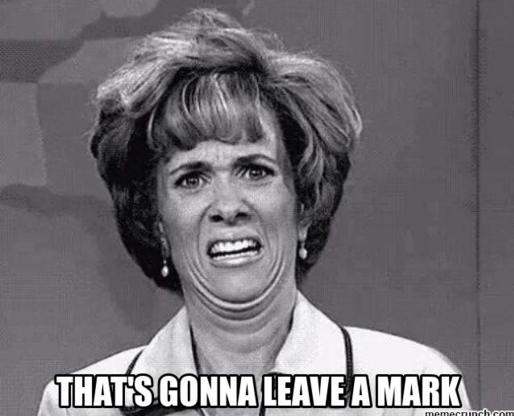
This experience taught me countless painful but priceless lessons—blood lessons—which I’ve been applying to the book business since 2004. It’s true. Sometimes there are factors we can’t control which will impact our capacity to sell, but that’s no excuse.
To be successful in business, even the book business, it’s critical to do as much as possible to limit the impact of outside forces that control or limit earning ability. I learned this in paper sales and it’s how I could see why and how Amazon eventually was going to take over.
One major reason Amazon has been kicking legacy tail for years is that legacy publishing had/has too many outside forces beyond their control that impact profit. Namely, they’re business model depends heavily on the big-box bookstores.
In the late 90s, Borders and Barnes & Noble, in an act of unrepentant greed, obliterated the small indie bookstores. This move also wiped out the author middle class. The Big Six was all for these giant stores reinventing the book business because literacy and choices and…literacy!
Sure.
Or maybe it had to do with all the 26,000 square foot stores crouched on every corner that required a crap ton of physical inventory. Megastores meant massive preorders and unprecedented control over which authors/books were positioned where. I’m not judging. It was a sweet business move for the time.
Publishing Oligarchy
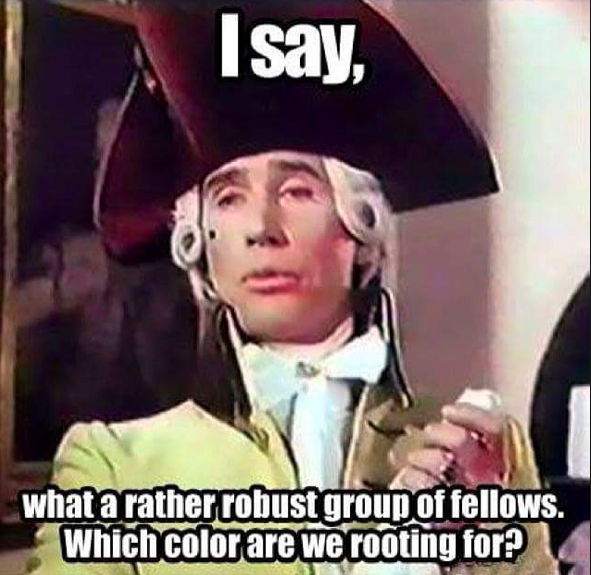
Heavy hitter household names obviously garnered premium displays/locations and the largest guaranteed preorders. Didn’t you ever wonder how some mega author’s book could be a #1 New York Times Best Seller when the actual book wasn’t even yet available to READ?
I know I did.
The megastores also made sure to carry these authors’ backlists. Essentially, authors who were already multi-millionaires made even more millions. To be clear, I love it when writers make millions, even if they’re making more millions. My main gripe has always been this ‘success’ came at the expense of those authors who were not yet household names.
And, under this big-box bookstore model, they never would be.
Hell, Tom Clancy DIED in 2013, but ‘Clancy’ is still putting out books as of November 2017.
#NotCreepyAtAll
Let Them Eat Cake
If one happened to be a mid-list author or a new author? Sucked to be you. Mid-list authors who’d been making a good living wage had to get a day job because, in the spirit of a ‘browsing experience,’ most backlists were mothballed (taken out of print).
Readers could get copies but only in secondary markets (used books) where the authors made no royalties. Since the mid-list authors’ backlists were no longer gracing shelves in the primary market (new books), these authors suddenly were struggling to make a decent living.
Also without the market saturation that goes part and parcel with having a robust backlist in circulation, there was little to no chance of ever making mega status the old fashioned way.
The Author Homecoming Court had already been chosen, and apparently even death can’t free up space.
New writers? Spine out on a shelf and pray your last name didn’t start at crotch level or lower. Tragically metaphoric.
Reap What You Sow
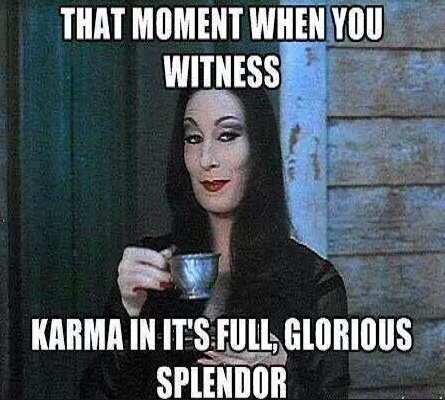
In the 90s, gas was super cheap which contributed to the rise of the big-box store boom. Problem is, what happens when karma catches up?
Was it really necessary for Borders and Barnes & Noble to drive virtually every last mom and pop store and small chain out of business? The answer is NO. No it was not.
Remember, I mentioned paper is heavy? #Irony
Apparently folks in charge forgot Business 101. Markets are not static and operational costs can change in the blink of an eye. Physical books have to be shipped to physical stores. Gas prices go up? Profits plunge.
Then there was this thing board members of Borders and Barnes & Noble probably should’ve paid better attention to in the late 90s: the imminent rise of a user-friendly Internet and the very real threat of viable e-commerce.
While the bookstore moguls might have dismissed these ideas as science fiction Jeff Bezos, Steve Jobs, Larry Page, Sergey Brin, and Bill Gates took it all very seriously.
*has mental image of these guys coming together like those robot lions that form Voltron*
Anyway…
Borders’ death wasn’t a shock to me. It’s hard for me to be anything but frustrated watching Barnes & Noble continue to bleed out. Oh, and trust me, they are. I ran the numbers and from 2008 to 2017 B&N was forced to close an average of 21 stores a year. In 2008, they had 798 stores and as of September 2017 B&N was down to 634 stores, according to Forbes.
The latest CEO in a string of failures has come up at least one answer to what ails them. Barnes & Noble needs…smaller stores.
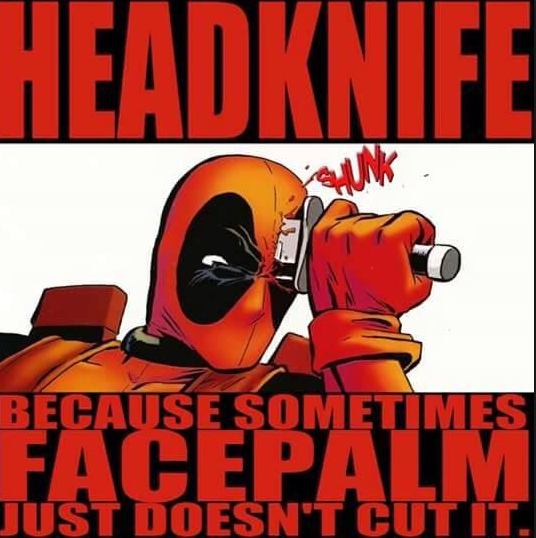
Also, the newest plan to save the Barnes & Noble bookstore is to sell mostly everything BUT books (vinyl records, toys, gifts, etc.).
*silently screams*
The Publishing Cold War
Earlier I mentioned one tenet of business success: Do as much as possible to limit the impact of outside forces that control or limit earning ability.
Amazon did this. By mastering e-commerce, they controlled overhead, were highly maneuverable, and outside forces had limited and manageable influence over them. Borders and Barnes & Noble failed to do this, as mentioned earlier.
Another tenet of business success is to never take on your competition in the area where they hold major advantage.
Amazon also understood this, which is why they waited until 2015 to open their first brick-and-mortar store. Barnes & Noble, however, decided to duke it out with one of the world’s largest e-commerce companies in the very arena Amazon built.
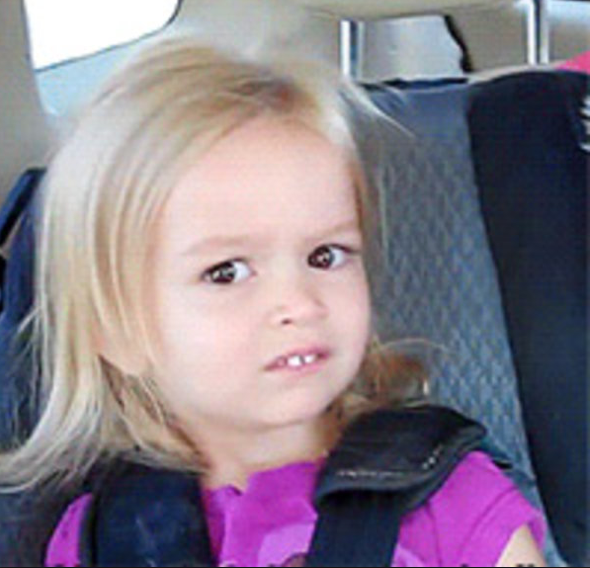
Barnes & Noble forgot it was in the book business, and not a tech company. They launched the Nook which has been nothing but a black hole sucking in millions and tanking stocks…a financial hemorrhage that’s been a major factor driving so many store closures.
Barnes & Noble got target fixation and bought Amazon’s feint…hook, line and sinker. Amazon had them (and a lot of other people) wholly convinced most consumers preferred to shop on-line.
Not necessarily…
Consumers are People
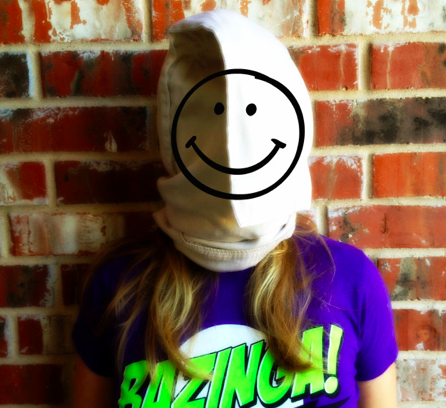
People. Not numbers or data points. Readers are flesh and blood humans. Humans like to browse, touch, hold, feel, etc. We are social and tactile by nature. I knew that, which is why I wagered Amazon had a very different game plan than most folks believed.
All of this is purely conjecture, but I think I make a solid case.
Amazon convincing B&N they had no choice BUT to compete on-line reminds me of Reagan convincing the USSR that America could nuke them from space.
The more money B&N shoveled into e-commerce, the more their physical store presence shrank to cover losses. All of this played right into the Amazon’s long game. From what I can see, I believe Amazon’s objective was to force the competition to cannibalize itself…and vacate the precise market they WANTED.
Brick-and-mortar.
Once the big-boxes were down to a certain number, then Amazon would open their own small bookstores. A lot of them. And they wouldn’t have to cater to the Big Five’s demands or worry about any big-box competition.
***Oh, and they used the time bludgeoning megastores to perfect algorithms to prepare for smart-stocking their future stores.
Humans Never Change
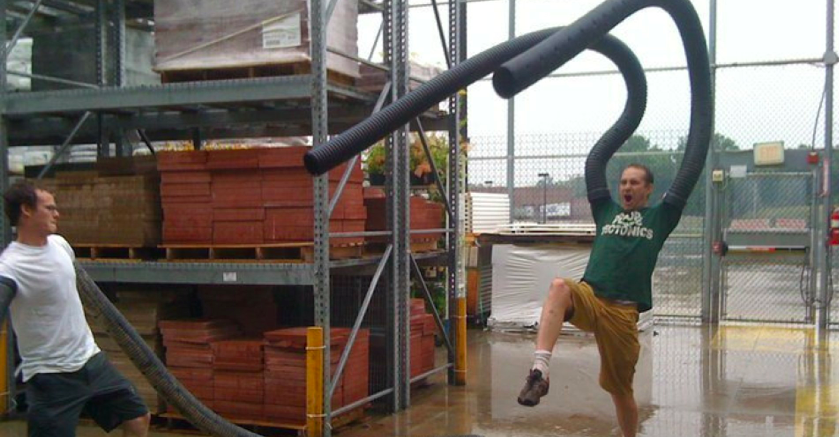
Why Hubby and I are no longer allowed back at Home Depot….
What Barnes & Noble never realized is that humans generally prefer what’s easiest. If there aren’t any bookstores close to us, then we’ll shop on-line. Again, in 2012, I wrote a post I’d hoped B&N would read and heed, regarding small being the new big.
I pointed out that consumers wanted bookstores that were convenient. We wanted physical bookstores, but we weren’t willing to drive to the next fricking city for a ‘browsing experience.’
Especially since these big guys haven’t been an experience since about 2001. They were Applebee’s…but with books and no french fries. Same look, same books *yawns*. Displays weren’t curated by passionate and autonomous sales clerks. Every inch of real estate was pre-negotiated and mapped out.
Anyway, I’d say Amazon counted on Barnes & Noble’s hubris. The best way B&N could have kicked @$$ years ago was to open up small bookstores in strip malls…just like the ones they’d obliterated.
But, alas, pride comes before the fall.
In the October 21, 2016 article in The New Yorker, What Barnes & Noble Doesn’t Get About Bookstores, Leonard Riggio, the man who bought Barnes & Noble forty-five years ago and turned it into a giant finally conceded this mistake:
The No. 1 consideration of where someone will shop is how close it is to where they are. It has nothing to do with pedigree or branding. If there’s no bookstore close to them, they’re more likely to buy online. If there’s one close, they’re more likely to buy if it’s a block away.
Amazon & The Long Game
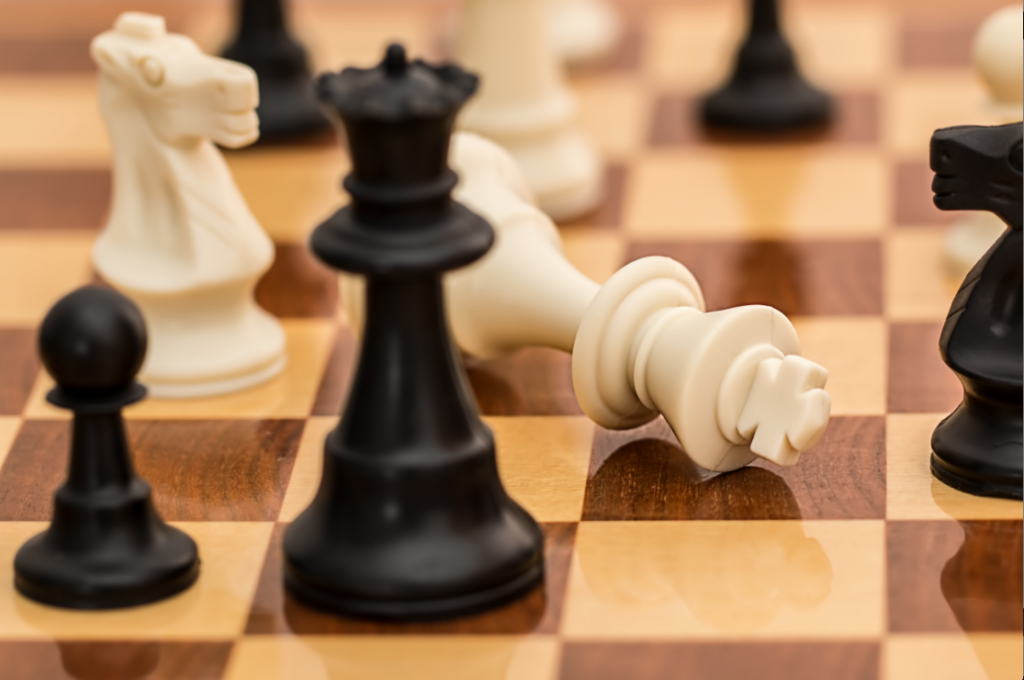
Why would I bother trying to help Barnes & Noble time and again despite how they’ve hurt writers? Again, let’s hop in our blog DeLorean and visit—you got it—2012. Something about that year. Mayans maybe? *shakes head*
I wrote a post called Amazon: Beware of Greeks Bearing Gifts. Feel free to go read the post in its entirety, but to save you clicking over, I’ve copied the salient parts from a post that is SIX years old.
I really hope New York gets its act together, because, once the competition falls away and Amazon burns New York to the ground? What happens to the writer? What happens when we fall asleep and it is safe for Amazon’s Trojan Horse to unleash the gorilla?
Amazon right now is in the courting phase with writers, and it is using us (writers) as a weapon to kill our former masters. Ah, but if Amazon really gets its way…what then?
When NY is razed and Amazon has no real competition, do they have to keep giving us the same sweet royalty rate? What happens when it’s Amazon’s turn to hold all the keys to the kingdom? Will they use them any differently than those they crushed to gain them?
Still a good question, which is why that platform is so vital. If Amazon goes cray-cray, we have the power to walk away. Yet, for the record, I support legacy publishers and I’m cool with Amazon. I love great books and don’t care how they’re published or by whom. I buy a lot of books from both of them.
It’s monopolies that give me hives.
Back to Book Business
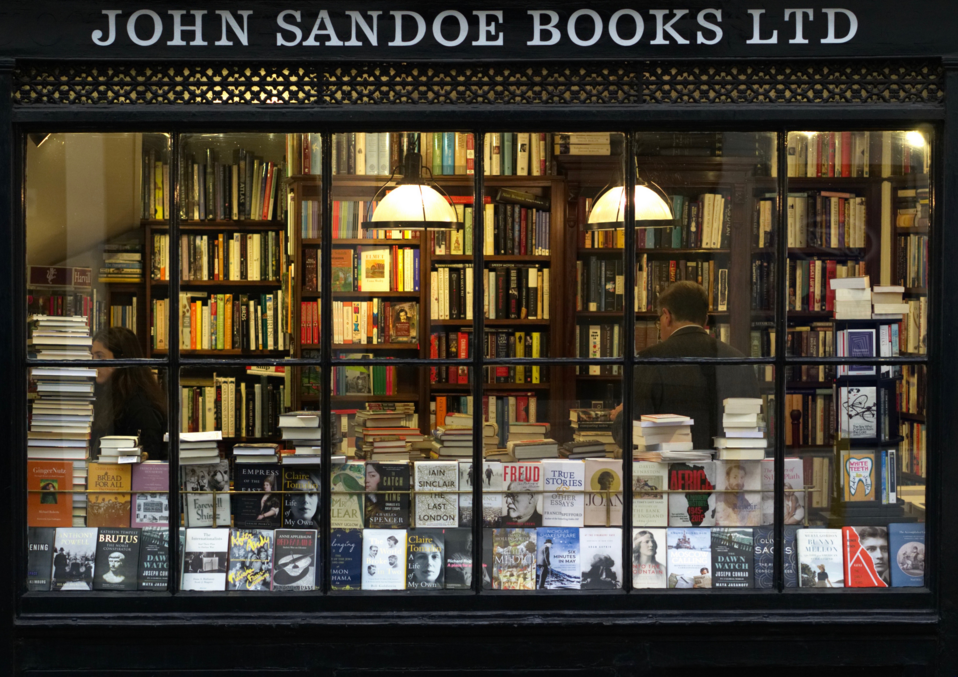
While the masses screamed Amazon was killing the bookstore, I was betting differently. Frankly Amazon couldn’t kill something that was pretty much already dead.
Borders and B&N had already decimated indie bookstores and small chains. Amazon wasn’t out to kill bookstores, it was out to kill the big-box bookstores…then replace them.
Why writers need to pay attention to this new shift is that Amazon is about to be top dog in e-commerce as well as brick-and-mortar. This means that platform/branding thing becomes a whole lot more important. So does the writing really amazing books 😉 . But, if Amazon is not your beer, I have wonderful news!
You’ve Got Mail (Alternate Ending)

Who would have guessed the end of You’ve Got Mail wasn’t the end of The Shop Around the Corner?
Nature abhors a vacuum and while Amazon was doing it’s big power play, little guys slipped in and did what entrepreneurs do best. They got creative. Independent bookstores are exploding in popularity and readers are thrilled to have their local bookstores back…only way better.
The Indie Bookstore 2.0 is a very different creature. Some have wine bars, cocktail hours, flower shops, cafes or even microbreweries. The imagination knows no bounds. There are culinary bookstores dedicated to cookbooks that hold cooking classes and have fully stocked kitchens so customers can try out merchandise.
Some stores are architectural works of art, their owners passionately vested in creating spaces humans want to gather and hang out. Hubs for communities to come together and klatsche.
We agree, Kathleen. Whatever anything is, it ought to begin by being personal and enterprising new indie bookstores concur.
Now these entrepreneurs have actually enhanced the bookstore experience. Check out Novel in Memphis, Tennessee, BookBar in Denver, Colorado, and Read It & Eat in Chicago, Illinois.
Shoppers have wanted bookstores all along (and we’d long ago lost our fascination with cheap). Heck, Amazon has a bazillion crappy books we could download free. No, these next-generation indie stores handcraft their selections. Salespeople are well-read experts who love books, who are empowered regarding book placement. In many of these stores, premium spots are non-negotiable and not for sale.
The books readers want and salespeople love grace the best spots. Don’t know about you, but I’m giddy. It’s like the Chess Club finally has a real shot at the Homecoming Court, LOL.
Raise Your Glass!

Readers and writers win! This new generation indie bookstore is not chained to the Big Five or beholden to Amazon, though very friendly to both. These bookstores don’t care about pedigree, they care about what books readers want to read. The give no figs if authors are published via legacy, traditional, small press, indie or self-pub. Their sole loyalty is to their customers (readers) and to the authors their customers love.
Kind of like the good old days only now we have nibblies, and wine 😀 .
I LOVE Hearing From YOU
What are your thoughts about the changes ahead in the book business? Me? I’m almost giddy! Imagine all the creative types of independent bookstores. Bookstores with only fitness and nutrition, healthy living and wellness books that hold yoga classes and bootcamps in the parking lot. Science fiction and fantasy bookstores that carry gaming and D&D supplies, Cosplay costume classes, or demonstrations on sword fighting. Mystery bookstores that include a Mind Maze experience, too?
Now THIS is a bookstore future I can get fired up about! Vindication! Good books win! A social media platform that is social and focused on people and relationships matters! (Told you guys to ignore all that newsletter algorithmic alchemy crap). This is fantastic news. Unlike the B. Dalton days, we can cultivate passionate fans willing to pay retail ahead of time instead of relying on BLIND LUCK. *does cabbage patch dance*
I love hearing from you and am not above bribery!
What do you WIN? For the month of JANUARY, for everyone who leaves a comment, I will put your name in a hat. If you comment and link back to my blog on your blog, you get your name in the hat twice. What do you win? The unvarnished truth from yours truly. I will pick a winner once a month and it will be a critique of the first 20 pages of your novel, or your query letter, or your synopsis (5 pages or less).
NEW CLASSES!
Master Class: How to Write a Series
Taught by Kristen Lamb AND Cait Reynolds…together…in same room. It’ll be fun! Class is NEXT FRIDAY January 19th, 7-10 PM EST in our W.A.N.A. Digital Classroom. $75 for a three hour class of intensive education and lots of shenanigans.
A free recording is included with class purchase…though we reserve the right to edit out anything that can and will be used against us in a court of law.
Your Life as a Story: How to Write a Memoir
Friday, January 26th 7-9 PM EST in the W.A.N.A. Digital Classroom with USA Today Best-Selling Author Cait Reynolds. Class is $65 and a free recording is provided with purchase.








62 comments
4 pings
Skip to comment form
Kristen, this is probably my favorite post by far.
I’ve read this twice now, soaking in the ‘Kristen-ness’ and feeling my shoulders slowly relaxing with every word…
wheeewwww
Thanks aren’t enough, but are all I can offer in my current Kristen-buzzed state of mind.
So…thank you, Kristen Lamb, for selflessly spilling a giant pile of brain power for all to see. I bow to your passion and willingness to share.
[considers kissing screen, but static electricity is really high…]
Author
I am so sorry it was so long, but without the whole picture, it took away the MAJESTY of all we have ENDURED! *raises a glass in a toast*
Length was no problem at all!
Amen to majesty, endurance, and toasting!
Thank you, Kristen. Wonderful post. If I’d only saved my separation pay from my forced retirement as an offset press operator, I’d be in a position to open an independent book shop. Alas, I had to use it to live on. Hopefully this writing thing turns out better this year than last. Twenty-five dollars in royalties doesn’t exactly start to cover self-publishing costs.
Thanks for a rosy glimpse of the future.
I could only peruse this post on account of minding “Little Frankie” but it seems so hopeful and somewhat exciting to be a part of a revolution.
Thanks Kristen, I’m bookmarking this one. 🙂
I love watching you analyze the industry! It’s going to be interesting to see what happens next.
Hi Kristen, Love you blogs. Took your blogging class and after my first novel was published, I’ve been blogging once a week. (Now I know I should have started before my book was published and, according to your guidelines, blog two to three times a week. Just can’t do it along with my other responsibilities, including writing novel number two. Sigh.)
Saw this article this morning right before I read your blog. Thought you might be interested in The Rise and Fall of the Blog: https://daily.jstor.org/the-rise-and-fall-of-the-blog/
What do you think? Is blogging losing it’s effectiveness and appeal for authors?
Author
They have been saying that for ages. If I would have listened to them, I never would have blogged. They said it was dead back when I started. Also they don’t want us blogging for ourselves because they are using writers to make them money. If the blog is dead then Huffington, Oprah, Cosmo, Forbes, etc. didn’t the memo. They are using writers as free labor to make them millions. https://authorkristenlamb.com/2017/10/pay-the-writer-2-out-hustle-the-hustlers/
And if you took my blogging class, remember attendance is all that matters. You don’t need to write Pulitzer winning articles. Post a funny video, pictures, just something to engage with your audience about the stuff they enjoy. Keep it simple and ON YOUR SITE so you can reap the financial benefits.
These fear-mongering posts want you to give up on your brand, believe it is all about numbers and hits and then they use you to make them bigger and richer. Just keep pressing 😉 . Also, my newer blogging classes might make this more fun for you.
Author
And these folks have no idea what the hell they are talking about. I know bloggers making almost 20K a month just off ads on their blogs. So yeah. Ignore it. It’s fear-mongering click bait written likely by some poor slob being paid in exposure dollars.
Kristen,
Come to Nacogdoches and see our lively, lovely bookstore/hangout, The Bosslight. The owner is novelist, Tim Bryant, and he curates the heck out of the place, local authors and artisans.
Cheers!
Nancy
Sounds fun!
Oooh, I hope we get indie bookstores again in my area!
Terrific insight. The future is all about customization and specialization. We want what we want, and niche markets are sprouting up to give it to us.
Thanks Kristen! I absolutely love this blog post, because I love physical bookstores. The BN that is near my work is full of people who know their stuff, and they are so good to local authors. I am old school in that I still like to hold a book, spend time with it, and if I get an autographed copy, I’m over-the-moon thrilled. I’ve read a few e-books, but I just don’t have the same relationship.
Great post! It was interesting to read the history. I found myself nodding my head a lot. I remember that, and that. And yes, the fall of paper (I work for a company who still sends out millions of catalogs a year.).
Big Five publishers understand the importance of the indie stores, and I sure as hell do. My middle grade debut from HarperCollins has 3 starred reviews, but if I ask about it at B and N they have no idea what I’m talking about but they’ll check the computer for me. The indies are where they know the books, love them, hand sell them. This is why as an Arizonan my Train I Ride has sold more copies in Burlington Vermont than in Los Angeles. I love the indies for these reasons and more.
It may sound corny, but your post brought tears to my eyes. Seriously good stuff. Thank you for everything.
My take-away: keep writing good books. Be social. So the question begs, how important is the author blog and mailing list in the scope of this?
Wow, I didn’t know about this partially because for the main part I’m a story-writer. However, even authors like me have noted the changes happening, and cringed at all of them as they did. Back in 1997 when I started out, like you I had dreams of book signings, readings, heard about just walking into an editor’s office with a pitch or a manuscript… yeah I never dreamt of the terms SEO or Kindle, and even zines were just starting out! It’s been very rough, very rough indeed, and I gave up for awhile after the first indie publishing company to want a book I’d written folded. Now you tell me of the new indie bookstore, a concept that I truly like; I’d sooo love to have an sf/fantasy store in this town! Meanwhile, more stories; the story-pub market works almost the same way… almost. Like I said, SEO. Who’da thunk I could publish stories on Amazon?? Strange times.
Love this post. Hoping we get a cool indie bookstore soon:) I would love your amazing critique gift:)
All this confusion is why I’ve been sitting on the 4 novels and two anthologies I wrote in recent years I also have a new book in progress and a handful of finished novellas, the question is what do I do now? I’m a published freelance journalist and artist and that doesn’t mean diddly as a platform. What is one to do? Legacy, self-pub, hybrid, I have no idea. I had a contract on a none fiction book accepted some years back but I rejected the deal as it was a bad deal for me. What would you folks do?I’m open to suggestions.
Author
Just wait, Rachel. I am going to be writing a WHOLE series of blogs with a lot more training and a hell of a lot more sparkle 😀
Amazing article. One thing you didn’t bring up is the authors going it on their own through websites like Book Funnel or even their own websites with Pay Pal. It’ll be interesting to see how they do in the future. Could it be that Amazon will have to do some improvements on their algorithms to keep the group of people who actually made them the company they are today?
Thanks for keeping us up to speed on all these things.
Author
I’m going to address a lot more business stuff/training. Take heart on that! Just this post was ridiculously long and was skating y’all’s grace as it was, LOL.
Love it as usual. I have worked in one of the big stores, I was assistant manager of B-Dalton back in the 80s, when their store was in the local mall. They ended up getting absorbed by the BN-Borg. I also worked in books for Hastings, who have also been a casualty of the wars.
I’m glad to hear things are changing, it’s disheartening to have to fight for attention all the time, knowing that you are just one of a bazillion vampire books out there, especially when you know you’ve got a different take on the subject.
What I would love to see in a future blog is a way to market to these smaller stores. Unless you’re in Ingram or Baker & Taylor’s catalogs, you’re not able to market to the bigger stores; are the smaller ones doing that as well? How to get your foot in the door is a very big challenge at times.
Author
You can get into those catalogues and these indie stores order from them. We will talk more about business for writers in other posts 😀 .
Oh my God Kristen!! I feel a small butterfly of hope fluttering in my chest. I’ve been putting off finishing the second book in my series discouraged that all the hard work and hours of social media, etc have not produced the results I thought it would. Look out! Second novel on the way.
Wowser, Kristen! As a relative newbie Indie of 4 years and 4 books still waiting to see financial ROI, I especially appreciated your look back on the business, but I LOVED your ferocity and bright outlook for what’s ahead. We have several stellar Indie bookstores in our region, and they absolutely are crushing it! Thanks for being such a grand champion.
Kristen, the thought of small independent bookstores rising from the ashes like a glorious phoenix, fills me with delight. Living in the burbs some 48 miles West of Sydney, we (Penrith) have a population of some 209,140, yet all we have is one second-hand bookstore – cluttered, difficult to navigate and badly organised. One Christian bookstore with a cafe called Pages attached. The only other two bookstores are in the main shopping complex. One is Dymocks, the other is QBD Books – both are expensive. For example, James Scott Bell’s Plot and Structure is available at QBD for $35 and at Dymocks for $38. Amazon sells the Kindle version for $9.89 and the paperback for $19.40 with free delivery. One wonders what will happen when Amazon finally opens their much touted bricks and mortar stores here in Oz. My guess is that it will be either in Melbourne or Sydney.
Thank you for the blog. There is hope for us yet.
God bless you for being such an astute analyst of the publishing industry! I have to read this more carefully later. All I know, is that with one kid in college now, it is time for me to promote my fiction. Writing is the easy part 🙂
I love this post. Two or three years ago I almost bought a building in downtown Venus (TX) to turn into a bookstore. I had it all figured out – name it Shocking Blue Books, renovate the second floor and have scrapbooking/art retreats on weekends… but I chickened out. I wish I hadn’t. I’d still love to open a bookstore someday, though.
Some interesting thoughts. I don’t think it’s equilibrium yet for bricks and mortar / traditional publishing but I agree they’re choosing the wrong battleground. Boutique style bookshops only work in gentrified places; now that cuts out most of the hollowed out villages, towns and cities as well as sink estates / ghettos. Your marketing brain can fill in the rest. On the other hand, it’s fair to say Amazon has a lot of poorly executed product. Self pubbers climb the food chain once they have the means. Traditional publishing have made this a viable (and attractive) proposition by flooding the market with formulaic fiction. The conclusion I’d still the same: up your game.
I write Science Fiction, Fantasy and Weird for the jaded, the world weary… but still looking for more.
I’d still the same = is still the same
(gulp)
Another great post, Kristen. Do you know what’s going on with Books-A-Million? They are the only bookstore left in my town. Not the most comfortable place to shop for books, but when it’s the only game in town that’s where everyone goes if they want a browsing experience. Plus, they have a frozen yogurt shop… Their stores seemed to have survived. Maybe they’re so far off the radar, no one cares. Meanwhile, Amazon opened a distribution center in the same town. 🙂
7 to 9 is 2 hours not 3, or did you mean 7, 8, 9 which would be 7 to 10?
Author
Oops. Good catch. Habit, LOL.
Thanks for giving a debut novelist a tasty plate of optimism—I’m already working with my local independent bookstores, and when the 48 family-owned Book World stores in our region closed, I got REALLY creative. More Than You Think You Know is now carried across the street at Swift True Value Hardware, where the fantastic Marilyn the Hardwarian is working retail magic (you can buy everything from soft pj pants to drill bits and gourmet kitchen items). Here’s to the continued transition of the publishing paradigm in 2018! PS, Can you do more on email lists and why they make sense? I haven’t one because personally, I don’t need more stuff in my inbox and in my marketing day job I see how abysmal open rates truly are.
You are a constant inspiration for me. Thank you for your writing.
I love smaller, independent bookstores. I love visiting them and I love talking with people who love books and know authors. I will be on their shelves one day soon.
And this is PRECISELY why I refuse to ‘go exclusive’ with Amazon!
Very interesting read. Thank you. Wondering what changes the next 4-5 years will bring for readers and writers.
Interesting post Kristen. I love your blog. Regarding out of print books and used copies, I started to feel guilty about buying used books when I realized the authors get no royaltyies from sales of used books. I discovered this after I became a published writer myself and became very sensitized to the realities of royalty issues. Only when there’ no other alternative do I buy used books. One example is Kurt Vonnegut. He passed away and no longer needs royalties and his books are impossible to get, with the exception of a few that are still best sellers like “Breakfast of Champions.” The time I felt most guilty is when my research for my own books made me desire a book called “Arthur’s Battle for Britain.” By Eric Wamley. Looking at Amazon I discover it’s printed In England only, and after shipping it over here it would cost me $48! I noticed Amazon had a used copy of it for sale for $0.01! That’s right, not a typo, ONE PENNY! The devil made me do it. I clicked “add to cart” and a week later got a good as new copy in the mail, shipped to me from a Goodwill shop in California. I felt soooooooo guilty! It’s a great book too.
With regard to your encouraging information about the new-style small indie book stores they sound really cool but here in central East Coast Florida (halfway between Jacksonville and Miami on I95, there are no such things). I can’t really comment on them and don’t know if they will succeed or not. I think there still remain many issues about brick and mortar bookstores and traditional publishing that indie bookstores probably won’t fix. I still think bookstores are going to go the way of dinasoars and dodo birds. I haven’t been in a bookstore for over two years now and as for the browsing experience I enjoy browsing on Amazon and Smashwords. Why Smashwords? Because you can still get a lot of totally free books there without paying the Amazon Prime membership fee. In fact, if Amazon is really going to cut their royalty fees as you hint, there will still be Smashwords as an alternative. Books don’t sell there as well but at least they’re commited to treating authors right.
Regarding the browsing experience, the most fun I ever had browsing was in this unusual used book store called Chuckles in Hobe Sound Florida. It’s also an antique store (downstairs) and I have bought a few really nice antique furniture pieces there. The used books are upstairs in three huges room. I estimate about 100,000 books and the owner agrees. It’s a huge mess up there but you can find just about anything you want because the owner will come up and help you search for it. I don’t go there anymore — because of the guilt.
Author
Actually don’t feel guilty about used books. There is another way that you can help the author make money. One you can see if the author has anything digital for sale. Royalties are higher on digital and just see if you can buy something new because the author is paid. But, if you can’t there is another way that might help even more. Leave an excellent review. Reviews are gold and tweak algorithms in our favor so more people on-line SEE the book and with more reviews (especially positive) are more inclined to buy.
As far as one opening in your area, again, just wait. A small store like this is actually way more likely to make profit in areas that are not major cities. And remember a lot of these places are hybridizing with cafes and bars so I wouldn’t count it out just yet. Just it is new. When I wrote my rant Pay the Writer the indie stores were all but dead according to any research I could find. The ones remaining were only alive because they were so old the communities kept them going.
In TWO years this has all changed. I have been blogging for years how they could hybridize with other services like wine or beer. The major problem with indie bookstores has been price. Most people won’t pay the full retail because we are used to big-box and Amazon prices, so an $18 for a paperback makes us cringe. But these new stores have found they CAN drop to just over wholesale prices on books $12-$14 but then charge MORE on, say, a glass of wine $10-$12 and thus make up their costs and make profit.
Thank you for the reply. You make me feel better because I have always given good reviews to the authors of used books I have read and one of them appreciated it so much she contacted me to thank me! Maybe I’ll drop by and see what Chuckles has again soon.
Great article and great writing are good; the logic-based hope you add makes this post splendiferous! (As my mother used to say.)
Ow, my hand is cramping, too, from patting you on the back all the way from Cali! Genius, Kristen! Brilliant! I’m raising my glass. You made my day. You called it through the whole dang process. Fascinating to read about your journey. Amazing how God led you to where you are. I feel so inspired. I’m going to continue doing exactly what you’ve been telling us to do. My sparkles had faded to a flicker, but you’ve fired me up. Right when I didn’t know if I could even get the next blog post written. Am kicking up my heels.
Thanks, Kristen, for your predictions. And thanks for the laughs. A few of those pictures had me laughing and snorting. Cheers, WANA Mama!
Kristen, you are brilliant. That’s really all there is to say about that. 😀
I trust you are right that indie brick and mortars are making a comeback. I love them as a reader and would be thrilled to do book signings at one of them.
I felt a deep sense of sympatico when you wrote of going through that phase of “why the hell am I writing.” Most of this year, it’s been difficult to open Word and began again. I’ve pounded out five novels, but after self-publishing followed by two publishers, I’m left feeling depleted and over-whelmed. Profits are peanuts and there’s never enough time to effectively market. And yet, I write because I love escaping into my imagination and putting it to paper. You are the one blog I always read because it’s spot on. Like Mulder says, “The truth is out there.”
Thanks so much for your great insight into the book business. I must confess that I have been wondering a lot why I even try to write sometimes. I loved to browse bookstores and would love to see an Indie bookstore in my area – or even an Amazon bookstore! It surely is more convenient to have a store around the corner than having to jump through the computer hoops to get to what you want to read. I raise my glass to you and hope that we have turned the corner in this business.
Great post. Can’t wait for local bookstores to come back. But you are right, they will be in new guises. I’ve been very successful marketing my romance books at hairdressers. Perfect place to find large numbers of women looking to read something other than a thumbed-through magazine.
LOVED this post! Especially liked the Home depot pic of your mate. You guys must be tons of fun! Wish i had been there in person to see it. I agree with your predictions and sincerely hope they’re right. You didn’t touch on the subject of audio books. Thoughts?
This was a fabulous post! I even love that you included the names of three new independent bookstores. Thank you for all this information.
Mindblowing!! Thank you for this eye opener… such things have yet to reach my part of the world but with our sheepish nature, we are sure to follow this creative trend in years to come!
As usual, your blogs are so full of insights and instruction. Thanks for this new year outlook and inspiration. As someone who is trying to push folks to record their life stories before they croak, this inspires me to consider the possibility of a bookstore full of #memoirs only, with classes on discovering personal history, coupled with a recording studio where folks can have a video or audio done as they demonstrate a special hobby or skill that will be lost to their families once they die.
What an excellent read on “what goes around, comes around.” I part time in Portland, Oregon and part time in a small mountain town in Colorado where “Indie Bookshops” have held their ground. As an “Indie Author”, it feels good to know we still have a place and that our place is gaining ground. Thanks for again for all that you do!
Reading a Kristan Lamb blog is like holding on at the end of the roller skate chain. Whee! Not sure I agree about people being over buying cheap, but oh how I (how we all?) miss real bookstores. There is one a mile from my house run by friends who doggedly held on through all the decimation. I worship those people. I pray they ride a new wave of small bookstore redemption with style and profit! Cheers, and thanks for the optimism.
Fantastic post! You always manage to spoon feed us a lot of great facts and keep me laughing at the same time. Now I really just want to run out an open my own little bookstore, with a tea shop perhaps?? Books and knitting? A book truck? Help me, I can’t stop…
Thank you!
This article lays out the craziness we authors all live in. Your analysis of the industry is one every publisher and store owner should read.
This is so timely. I’ve been noticing new independent bookstores and wondering how they will do against Amazon. This explains a lot and gives me hope as a writer. I’ve been driving myself nuts trying to figure out the best way to promote my series. Self-promoting always discourages me. This good news makes me feel better.
Here’s another reason I think (maybe) brick and mortar will make something of a comeback: the one thing that you (Kristen) actually already know (if you think about it), but folks generally don’t think about past the moment they grumble about losing those precious thirty seconds because they have to actually go the speed limit when one of these moves over to try and pass another one of these: trucks. (Go for it Grammarly. Heh.)
Why? ‘Cuz driver shortage. Despite the allure of autonomous vehicles, trucks still need drivers and there aren’t enough. Mostly because the trucking companies don’t pay them very much. And regs. And lack of parking. And it’s actually expensive to become a truck driver. Yep, you too can work 70 hours a week, visit home once a week (unless you’re OTR – then every couple weeks or so), deal with four-wheelers who think trucks are just like cars (yes, you there) and sit at the gate at your favorite Amazon DC for twenty minutes all for the amazing rate of .42/mile. You can make a solid 45K if you don’t mind not having a life.
The economy is on your favorite interstate. Trust me. Most everything you need is on its way. The stuff that’s in the store wasn’t there three days ago. (Unless it’s a Star Wars action figure.)
I can’t sell a book. I can’t get a job in an industry where I have twenty years of experience. But I can go to a paid orientation for a trucking job next week.
Point being: I know for a fact that the freight business is backed up. They cannot move stuff fast enough because there simply aren’t enough drivers to do it.
Which means efficiency in shipping is becoming more important. Dock to rail to DC to box truck to house isn’t as efficient as dock to rail to DC to retail outlet. It takes more drivers to deliver stuff to everybody’s house than it does to deliver stuff to a store. On-line retailing has shifted driving duties from you to box truck drivers. (Ever wonder why your stuff is late and really expensive to ship?) Point-to-point single unit shipping just can’t keep up.
So, with this shortage of drivers, I think supply chain managers are going to see a rosier distribution picture by expanding retail outlets. Shifting the last mile back to the consumer means being able to get more drivers behind the wheels of trucks that are most efficient at distributing the nation’s commerce: the big ones.
And, just an aside (if you’ve read this far): The next time you get aggravated by a big rig pulling into the left lane and “slowing you down,” understand that any truck that has a major carrier’s name on it is governed (The engine is physically restrained) to not exceed anywhere between 60 and 65 miles an hour. They’re not going any faster because they can’t. And trust me, you really want it that way.
I want to see you do the cabbage patch dance. Seriously. Great post. 🙂
Great post. I need to follow you on Twitter. I have shared this post on my Twitter and Facebook pages. I have also put a link on my blog. In all honesty, however, I have a very small platform right now. I’ve been writing a while, but haven’t focused on social media until recently. Thanks, Kristen.
Author
No big deal. I teach you to work smarter not harder. Would have done you no good to do this 7 years and all wrong ;). Welcome!
IT has been some time since I’ve left you a comment, but sneaking in while at a paying day job that is sucking the life out of me. I have an author friend is has a published series that almost killed her writing it who tells me it really isn’t worth it. I am a good storyteller, an author who has almost been published for years and stuck between why bother and believing. I am leaning more toward believing once again. I may not make the big-box best seller end-cap, but I have some who love my work and it would do well at a smaller establishment. Hell, maybe even quit my day job and open one up in Nashville. Thanks for always having our backs! I can always count on you for an encouraging word when it’s most needed. ~ Kolin
[…] https://authorkristenlamb.com/2018/01/book-business/ […]
[…] Battle of the book business: Publishing Cold War is ending von Kristen […]
[…] model even as Borders was collapsing. After it died, not much changed. I detailed a lot of this in a post in January of 2018 when I AGAIN laid it all […]
[…] Though, for NOW, I think it will be tough to sell books unplugged, that trend should shift. The reason? Borders and Barnes & Noble decimated the indie and mom-and-pop bookstores. […]